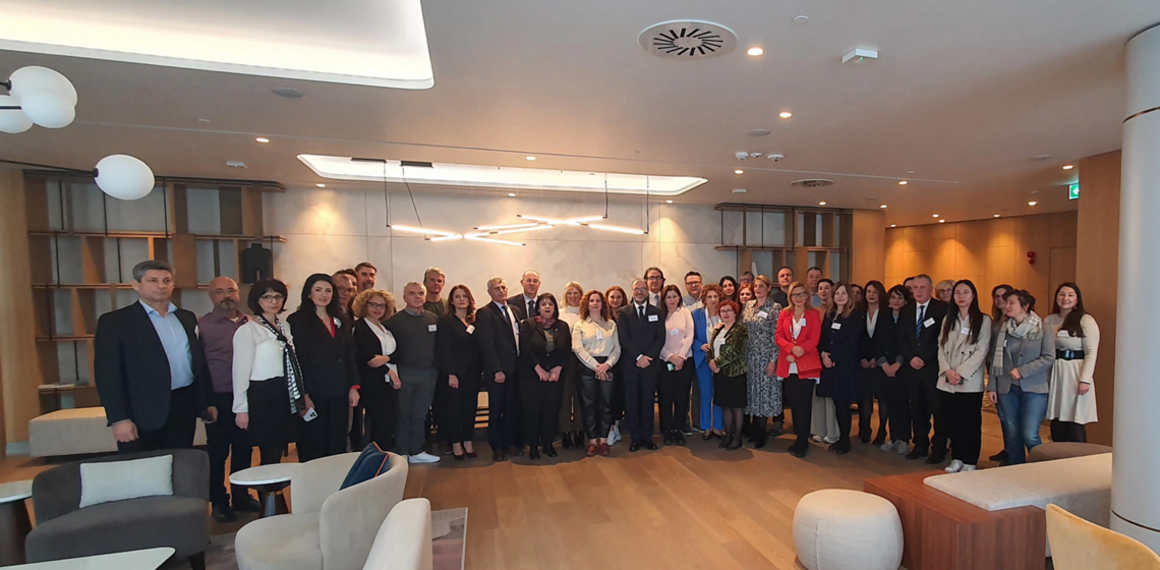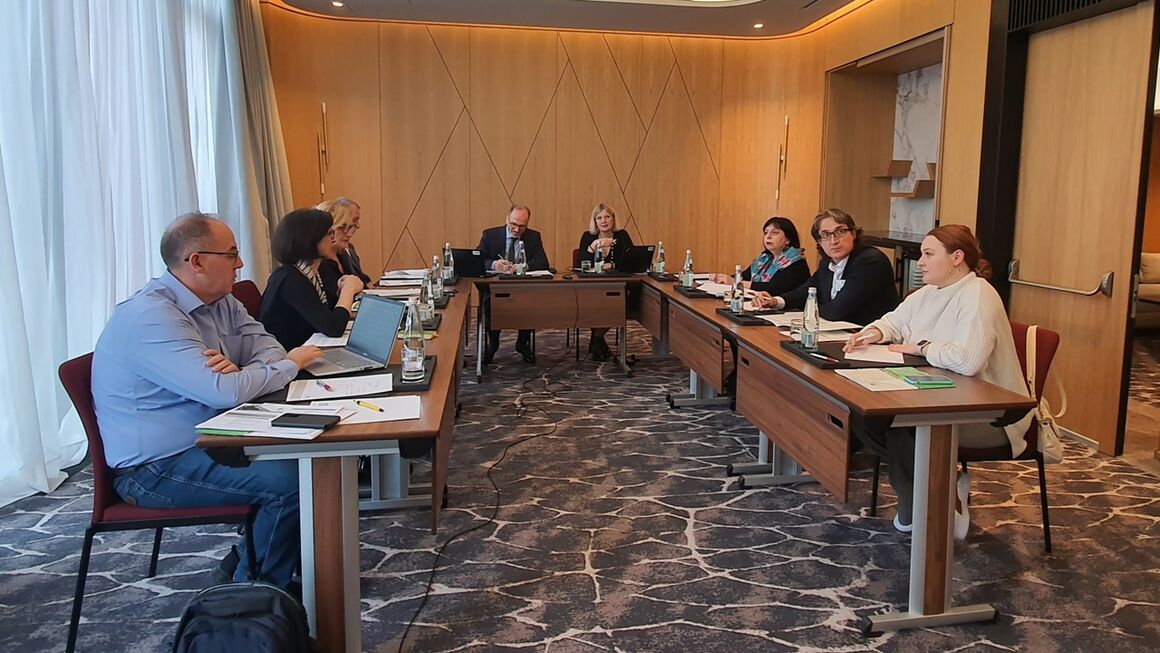Annual meeting of National ECDC Correspondents in the Western Balkans and Türkiye
The 2023 annual meeting of the National ECDC Correspondents in the Western Balkans and Türkiye took place on 5 – 6 December in Tirana, Albania.

The hybrid meeting brought together National ECDC Correspondents and Observer National Focal Points (NFPs) from across the region, as well as ECDC staff members and European Commission officials from the Directorate General for Neighbourhood and Enlargement Negotiations.
It provided an excellent opportunity to look back at the outcomes and achievements of 2023 and discuss the priorities and planned activities for 2024.
Following up on recent developments at ECDC, the meeting focused on technical cooperation in 2023 in the areas of disease surveillance, microbiology, and preparedness. Participants also discussed future priorities for ECDC support to national authorities in the Western Balkans and Türkiye.
The meeting agenda allowed the representatives from the countries to:
- receive updates on recent strategic developments related to strengthening the EU’s health security framework and the legislative proposal to extend the mandate of ECDC.
- reflect on achievements, lessons learned, and next steps in the specific areas of cooperation, implemented through the ECDC Accession Support activities, in particular implementation of EU acquis on communicable diseases, strengthening surveillance, enhancing preparedness and response capacities, supporting public health microbiology laboratory systems, and engagement in specific disease surveillance networks;
- discuss and reflect on the future needs of the countries for support to deepen cooperation between ECDC and national authorities in the Western Balkans and Türkiye which will form the outline for the upcoming ECDC Action with Western Balkans and Türkiye as of 2025.

ECDC staff presented the recent changes to ECDC’s mandate and the SCBTH Regulation and provided an overview of future priority areas for collaboration during the next phase of the project (2024–2027).
Representatives from the European Commission provided updates on the EU Health Policy and EU acquis within the EU accession framework and presented the financial instruments and programmes relevant to public health authorities in the Western Balkans and Türkiye going forward.
Representatives from the Western Balkans and Türkiye shared the latest developments on communicable disease prevention and control in their respective countries and discussed their plans for the future, highlighting the importance of continued ECDC support.
Participants engaged in group discussions on surveillance and disease networks, preparedness and response, and epidemic intelligence, as well on advancement of collaboration between the national public health authorities and ECDC.
Background
The cooperation with the Western Balkans and Türkiye is reviewed, defined, and planned by ECDC through the network of officially nominated National ECDC Correspondents, especially during discussions in annual meetings.
ECDC, under the coordination of the National ECDC Correspondents, has been working with national authorities in EU enlargement countries (Albania, Bosnia and Herzegovina, Kosovo[1], Montenegro, Serbia, North Macedonia, and Türkiye) to support and strengthen their capacity for their future participation in ECDC. In the framework of ECDC technical cooperation activities supported by the European Commission under the consecutive projects financed from the Instrument of Pre-accession Assistance (IPA), representatives from the countries participate as observers in ECDC activities, meetings, networks, and technical discussions related to epidemic intelligence, threat detection, communicable disease surveillance and control, preparedness, and response.
[1] This designation is without prejudice to positions on status, and is in line with UNSCR 1244/1999 and the ICJ Opinion on the Kosovo declaration of independence.
ECDC Accession Support to the Western Balkans and Türkiye
ECDC is supporting the Western Balkans and Türkiye with the strengthening of their infectious disease prevention and control systems and public health workforce in order to prepare for their future participation in ECDC work.




